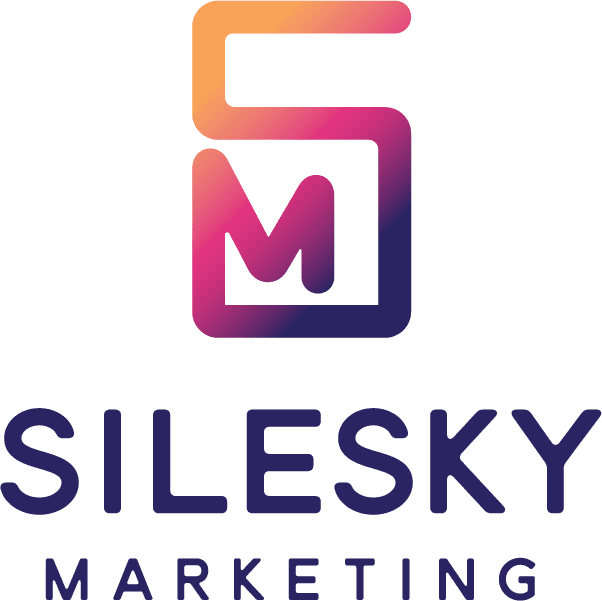
22 May Effective Digital Marketing Strategies for Small Business Growth
Small businesses often face an uphill battle when trying to stand out in a crowded market. Competing with larger companies with bigger budgets can seem daunting, but digital marketing levels the playing field. Effective digital marketing strategies for small business growth enhance online presence and attract more customers. By leveraging tailored digital marketing solutions, small businesses can not only survive but thrive, reaching their target audiences with precision and building lasting relationships. Silesky Marketing understands these challenges and offers comprehensive strategies to help small enterprises navigate the digital world successfully.
Understanding the Importance of Digital Marketing
Digital marketing is no longer optional; it is essential for any small business aiming to thrive. Digital marketing strategies help businesses reach a broader audience, engage with customers more effectively, and drive conversions. Traditional marketing methods are becoming less effective. Therefore, the shift to online marketing allows businesses to stay competitive in a digital-first world. The primary goal is to connect with potential customers where they spend most of their time – online.
Building a Strong Online Presence
A robust online presence is the cornerstone of any successful digital marketing strategy. This includes having a well-designed website, active social media profiles, and consistent branding across all digital platforms. Key elements of a strong online presence include:
- A user-friendly website that provides valuable information
- Active engagement on social media platforms
- Consistent branding across all digital channels
A well-designed website significantly enhances customer experience and builds trust. Additionally, social media engagement helps businesses connect with their audience on a personal level, fostering loyalty and encouraging word-of-mouth marketing.
Search Engine Optimization (SEO) Strategies
Search Engine Optimization (SEO) is crucial for improving a website’s visibility on search engines like Google. By optimizing website content for relevant keywords, small businesses can attract organic traffic and increase their chances of being discovered by potential customers. SEO involves various techniques, including:
- Keyword research
- On-page optimization
- Building high-quality backlinks
An effective SEO strategy ensures that a business’s website ranks higher in search engine results. This drives more traffic and generates leads. Additionally, SEO is an ongoing process. Businesses must regularly update and refine their strategies to stay ahead of competitors and maintain high rankings.
Content Marketing: Providing Value to Your Audience
Content marketing is about creating and sharing valuable content to attract and engage a target audience. This can include blog posts, articles, videos, infographics, and more. High-quality content establishes a business as an authority in its industry and builds trust with potential customers. Effective content marketing strategies involve:
- Addressing the pain points and interests of the audience
- Providing solutions that encourage engagement and conversions
- Enhancing SEO by generating backlinks and improving search engine rankings
Regularly updating content is also crucial. This keeps the information fresh and relevant, which helps retain the audience’s interest and boosts search engine rankings.
Social Media Marketing: Engaging with Your Community
Social media marketing is a powerful tool for small businesses to connect with their audience and promote their products or services. Platforms like Facebook, Instagram, Twitter, and LinkedIn offer unique opportunities for businesses to engage with their community, share updates, and run targeted ad campaigns. Key strategies for effective social media marketing include:
- Creating engaging content
- Interacting with followers
- Running targeted ad campaigns
Social media also provides valuable insights into customer preferences and behavior. This allows businesses to tailor their marketing strategies accordingly. Moreover, social media platforms enable businesses to respond quickly to customer inquiries and feedback, which enhances customer satisfaction and loyalty.
Email Marketing: Nurturing Leads and Building Relationships
Email marketing remains one of the most effective digital marketing strategies for small businesses. It allows businesses to directly communicate with their audience, share personalized content, and promote products or services. Key benefits of email marketing include:
- Building an email list and sending regular newsletters
- Nurturing leads and maintaining a relationship with customers
- Tailoring campaigns to specific segments of the audience
This personal approach helps increase customer retention and drives conversions. Additionally, businesses can use email marketing to gather feedback through surveys and polls, which can provide valuable insights into customer preferences and areas for improvement.
Pay-Per-Click (PPC) Advertising: Driving Immediate Results
Pay-Per-Click (PPC) advertising is a digital marketing strategy that allows businesses to display ads on search engines and other online platforms. With PPC, businesses only pay when someone clicks on their ad, making it a cost-effective way to drive traffic and generate leads. Google Ads is one of the most popular PPC platforms. Key aspects of PPC advertising include:
- Targeting specific keywords and demographics
- Delivering immediate results
- Providing an excellent return on investment (ROI) when managed effectively
Businesses can also use PPC to test different marketing messages and strategies quickly. By analyzing the performance of various ads, businesses can identify the most effective approaches and refine their overall marketing strategy.
Analytics and Data-Driven Marketing
Analytics and data-driven marketing are essential for measuring the effectiveness of digital marketing strategies. By using tools like Google Analytics, businesses can track website traffic, user behavior, and conversion rates. Important aspects of data-driven marketing include:
- Tracking website traffic and user behavior
- Making informed decisions based on data
- Optimizing marketing efforts based on insights
Data-driven marketing helps identify trends, understand customer preferences, and allocate resources more efficiently. This ultimately drives better results. Moreover, businesses can use analytics to identify potential issues or opportunities early, allowing for quicker adjustments and improvements.
Mobile Marketing: Reaching Customers on the Go
With the increasing use of smartphones, mobile marketing has become a critical component of digital marketing strategies. Small businesses must ensure their websites are mobile-friendly and that their marketing campaigns are optimized for mobile devices. Key components of mobile marketing include:
- Ensuring websites are mobile-friendly
- Utilizing SMS marketing and mobile apps
- Implementing location-based marketing
By prioritizing mobile marketing, businesses can enhance the customer experience and increase engagement. Additionally, mobile marketing allows for real-time communication with customers through push notifications and in-app messages.
Local SEO: Targeting Local Customers
Local SEO is vital for small businesses that rely on local customers. By optimizing their online presence for local search queries, businesses can attract customers in their area. Key strategies for local SEO include:
- Creating a Google My Business profile
- Getting listed in local directories
- Encouraging customer reviews
Local SEO helps businesses appear in local search results, making it easier for potential customers to find them. For small businesses, local SEO is a cost-effective way to increase visibility and drive foot traffic. Furthermore, businesses can use local SEO to highlight special offers and events to attract more local customers.
Video Marketing: Captivating Your Audience
Video marketing is an engaging way to capture the attention of potential customers and convey information effectively. Videos can be used to showcase products, share customer testimonials, or provide educational content. Effective video marketing strategies include:
- Creating high-quality videos that resonate with the audience
- Distributing video content on platforms like YouTube and social media
- Using videos to increase engagement and drive conversions
High-quality videos that resonate with the audience can go viral, amplifying the reach and impact of the marketing message. Additionally, videos can improve SEO by increasing the time users spend on a website and reducing bounce rates.
Influencer Marketing: Leveraging Popularity for Brand Awareness
Influencer marketing involves partnering with popular individuals on social media to promote a business’s products or services. Influencers have a large following and can significantly impact their audience’s purchasing decisions. Key strategies for influencer marketing include:
- Collaborating with influencers whose values align with the brand
- Ensuring authenticity and credibility
- Driving engagement and generating leads
By collaborating with influencers, small businesses can increase brand awareness and reach a broader audience. Additionally, influencer partnerships can provide valuable content that businesses can share across their own channels.
Using Automation to Streamline Marketing Efforts
Marketing automation tools can help small businesses streamline their marketing efforts and improve efficiency. These tools automate repetitive tasks such as email marketing, social media posting, and lead nurturing. Key benefits of marketing automation include:
- Saving time by automating repetitive tasks
- Enabling personalized marketing at scale
- Enhancing productivity and driving better results
Implementing automation tools can help businesses focus on more strategic activities. Moreover, automation allows for more precise targeting and segmentation, which can lead to higher engagement and conversion rates.
Building a Customer-Centric Marketing Strategy
A customer-centric marketing strategy focuses on understanding and meeting the needs of customers. By putting customers at the center of their marketing efforts, businesses can create more effective campaigns that resonate with their audience. Key elements of a customer-centric strategy include:
- Collecting and analyzing customer data
- Personalizing marketing messages
- Providing exceptional customer service
A customer-centric approach helps build long-term relationships, increase customer loyalty, and drive growth. Furthermore, businesses can use customer feedback to continuously improve their products and services, ensuring they meet or exceed customer expectations.
The Role of Branding in Digital Marketing
Branding is a crucial aspect of digital marketing that helps businesses differentiate themselves from competitors. A strong brand identity creates a memorable impression and fosters trust with customers. Key aspects of effective branding include:
- Consistent branding across all digital channels
- Using the same logo, colors, and messaging in all marketing materials
- Increasing brand awareness and attracting more customers
Effective branding can help drive loyalty and enhance a business’s reputation. Additionally, a strong brand can command premium pricing and reduce the impact of competitive actions.
Leveraging User-Generated Content
User-generated content (UGC) is any content created by customers, such as reviews, testimonials, and social media posts. UGC is highly valuable because it serves as authentic social proof, demonstrating that real people trust and enjoy a business’s products or services. Key strategies for leveraging UGC include:
- Encouraging customers to share their experiences
- Using UGC in various marketing campaigns
- Enhancing engagement and building trust with potential customers
UGC can amplify a brand’s reach and credibility. Moreover, it provides businesses with fresh content that can be shared across different marketing channels, keeping the brand’s message dynamic and engaging.
Integrating Offline and Online Marketing
While digital marketing is essential, integrating offline marketing strategies can create a more comprehensive approach. This includes traditional methods like print advertising, direct mail, and events. Key strategies for integrating offline and online marketing include:
- Using QR codes on print materials to drive traffic to a website
- Hosting events to enhance community engagement
- Creating a cohesive brand experience across all channels
An integrated marketing approach ensures consistency and maximizes impact. Additionally, combining offline and online efforts can provide multiple touchpoints for customers, increasing the chances of conversion.
The Future of Digital Marketing for Small Businesses
The digital marketing landscape is constantly evolving, and small businesses must stay updated with the latest trends and technologies. Emerging technologies such as artificial intelligence, augmented reality, and voice search are shaping the future of digital marketing. Key considerations for the future include:
- Experimenting with new tools and strategies
- Staying agile and adaptable
- Embracing emerging technologies to stay ahead of the competition
By staying ahead of the curve, businesses can continue to thrive in the ever-changing digital world. Additionally, ongoing education and training can help businesses make the most of new opportunities and maintain a competitive edge.
Going Forward…
Digital marketing offers small businesses a plethora of opportunities to grow and succeed. By leveraging effective strategies such as SEO, content marketing, social media marketing, and email marketing, small businesses can enhance their online presence, attract more customers, and drive growth. Silesky Marketing specializes in providing tailored digital marketing solutions that cater to the unique needs of small businesses. By partnering with Silesky Marketing, businesses can achieve their marketing goals and reach new heights.




Sorry, the comment form is closed at this time.